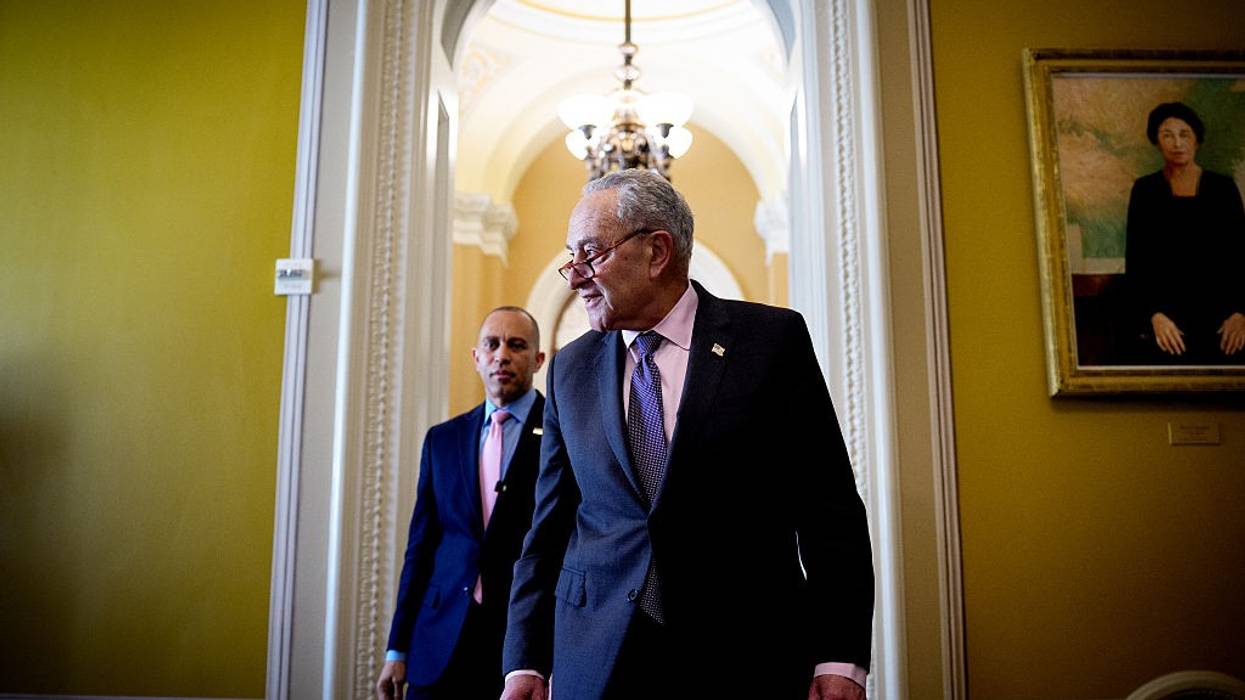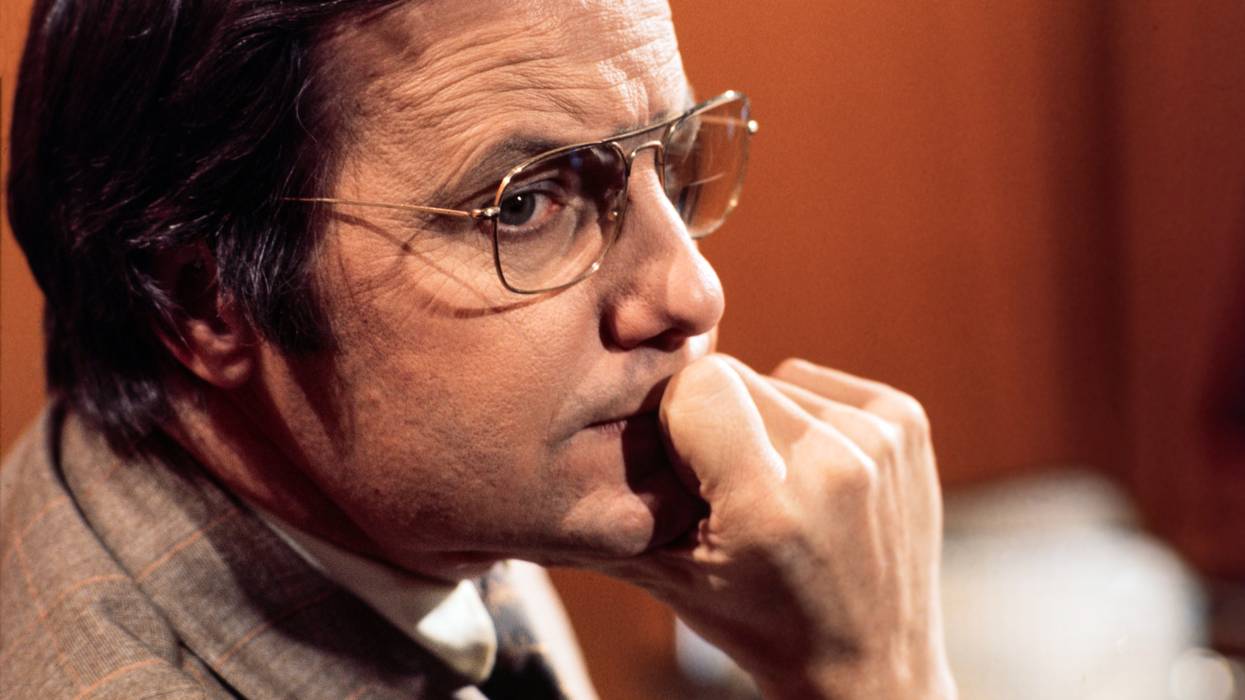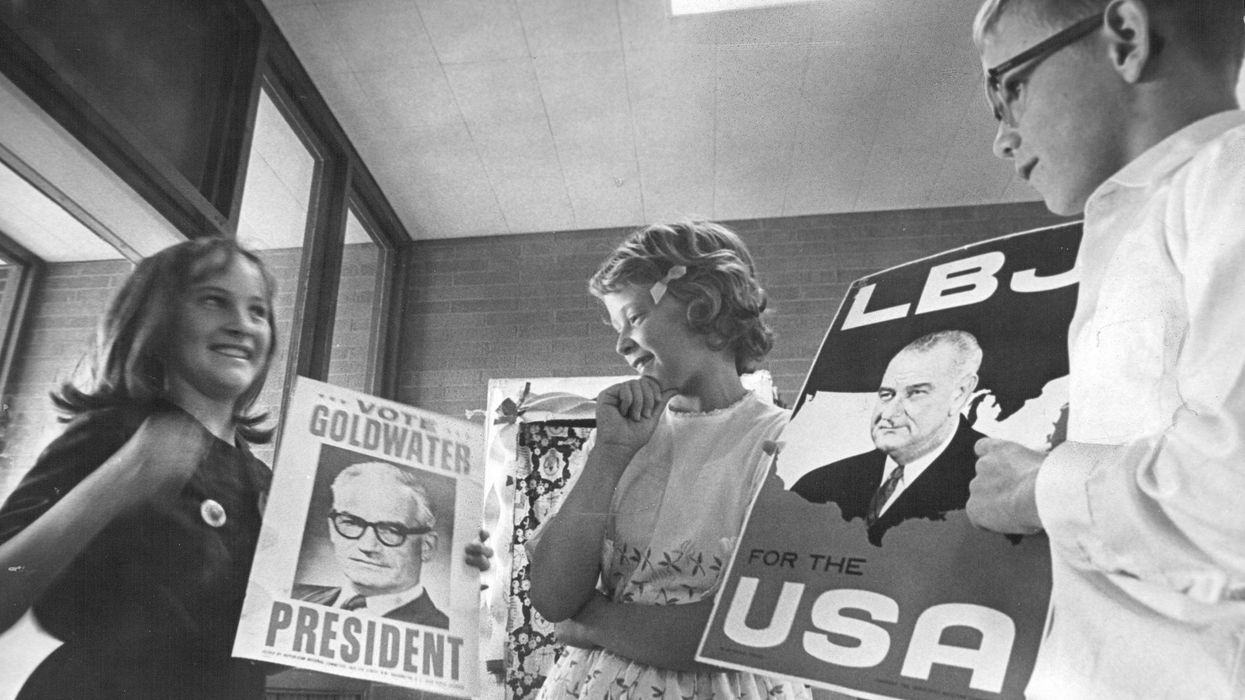Urgent Message to Progressives: Infiltrate Your Local Democratic Party Before It's Too Late
Take over the party from the inside, from the bottom up.
What if, lacking an organized resistance to fascism like we have had in previous eras (the civil rights movement, SDS, BLM, the Wobblies), the Democratic Party itself could play the role of producing radical, positive transformation across America?
Sound crazy? It’s actually happened twice.
The first time was in the 1930s, when Franklin Roosevelt’ New Deal literally flipped our politics and the American economy upside down, turning us from a raw, harsh capitalist system to a democratic socialist system with Social Security, legalized unions, unemployment insurance, a minimum wage, workplace safety rules, massive infrastructure construction, and millions of Americans being employed directly by the government to end poverty.
It happened again in the 1960s, with Lyndon Johnson’s Great Society, producing Medicare, Medicaid, the civil rights act, the voting rights act, food stamps, low income housing, National Public Radio, a transformation of our educational system for the better, USAID, Job Corps, VISTA, Head Start, a major Social Security expansion, The National Endowment for the Arts, and what was essentially free college.
Sunday, I was on Ali Velshi’s show on MSNBC a conversation about protest movements. I pointed out that back in the 60s, when I was in SDS, there were a number of groups that were quite active, particularly on college campuses, but today most of them have been gutted or banned.
Black Lives Matter has disintegrated, the movement against Israel’s slaughter in Gaza has led to universities rolling over and capitulating, and the #MeToo and abortion rights movements are essentially leaderless.
Which leaves the Democratic Party, as I mentioned on Ali’s show. Billionaires and racists turned the Republican Party into a neofascist protest party over the past decade; progressives and those of us who want to preserve democracy in America need to similarly says control of and radicalize the Democratic Party in the tradition of FDR and LBJ.
There is a vital lesson progressives must learn, which is how the far right took control of the Republican Party over a decade ago and forced the entire Conservative establishment to lurch so far to the Right that they’ve even dumped people like Liz Cheney and George W. Bush.
If progressives hope to have any shot at influencing today’s Democratic Party and kicking out the corporate sellout Democrats and replacing them with real-deal progressives, then we need to get to work right now to do exactly what the Tea Party did a decade and a half ago to take power.
And it starts in our own backyards.
Let me introduce you to the now-defunct Concord Project, a right-wing organization that, a decade ago, was in charge of helping the Tea Party’s Successful effort to take over and radicalize the GOP.
The Concord Project expanded their get-out-the-vote strategy beyond just traditional phone banking, canvassing, and putting up “vote Republican” signs. Instead, they decided to infiltrate local politics by encouraging Tea Partiers and conservatives more generally to become “Precinct Committee Members.”
Here’s their pitch in their own words from one of their Obama-era YouTube training videos:
“What’s the most powerful political office in the world? It is not the President of the United States. It’s Precinct Committeeman.”
So why is a Precinct Committeeman (or person) so important?
“First, because precinct committeemen and only precinct committeemen get to elect the leaders of the political parties; if you want to elect the leadership of one of the two major political parties in this country, then you have to become a precinct committeeman.”
As in the oldest and most basic governing reality in a republic: true and effective political power flows up from the bottom.
It starts with Precinct Committeemen and women — people who are either appointed or win local elections with very few votes at stake, in some cases only 10 or 20 votes — to gain positions that pretty much anyone can hold but which wield enormous power.
It’s Precinct Committee Persons who elect district, county, and state party officials and delegates, who choose primary nominees that then go on to hold elected office, and who help draft a party’s platform.
They’re also generally the first people who elected officials meet with when they come back into the district. And those officials listen carefully to what Precinct Committee persons have to say.
So, the Concord folks told their people, if far right Tea Partiers moved in and took over Precinct Committee seats then they’d also be able to nominate a slew of Tea Partiers to hold higher offices within the Republican Party and for primaries.
And those Tea Party Republican Party primary candidates would then be winnowed down in the primary to one Tea Party Republican to run against the Democrat in the general election. This way, Tea Partiers would end up dominating the GOP.
That was their pitch: take over the party from the inside, from the bottom up. And it worked.
Control the primaries — as the Precinct Committee Members do — and you control the ultimate candidate, the election, and ultimately the nation, as we’ve seen repeatedly since the Tea Party era.
This is from a video they posted in January of 2010, with the same Concord Project Representative encouraging people in the Tea Party to do exactly what I just described:
“This video is for all the people out there in the Tea Party movement, the 9/12ers, just good decent people who are really fearful of what’s going on in the country and want to do something to fix things and they’re not sure what to do. Well, I’ve got a solution for you. The best way to ensure that conservatives win that all-important primary election is to become a real ball player in the ball game of politics. And that ball game is called party politics.
“And this is a secret, they don’t want the party establishments, any incumbents don’t want you to know about this and that’s why I’m telling you about it. Only precinct committeemen get to vote for, to elect party leaders. Only precinct committeemen can vote to endorse candidates.”
Again, that was in 2010, 11 months before that year’s elections.
In 2008, half of the Republican Party’s Precinct Committeemen positions around the country were vacant.
But by 2011, motivated by the efforts of people like the Concord Project, the Tea Party (which has now mostly morphed into MAGA) had swept in to fill the gaps: They’d filled up the Republican Party.
And we saw the results of the Precinct Committee takeover first in 2012 and more and more vividly in every election since: the GOP is now being driven largely from the bottom up by activists who’ve taken over the party and are also running for school boards and other local offices.
In 2012, after this campaign to get movement conservatives into the GOP, Tea Party candidates got onto nearly every ballot around the country and picked up 87 new seats in the US House of Representatives and 9 new seats in the Senate.
And even though the Tea Party didn’t then control a majority within the GOP in Congress like MAGA does now, they did control the Republican Party’s platform because they had control of the Precinct Committees.
Progressives and believers in democracy who want to fight Trump’s fascism need to do the same thing, only within the Democratic Party.
The rules about how to become a Precinct Committee Person vary from state to state, so step one is to show up at your local Democratic Party, sign up, and find out who the players are and what the rules are.
Even the names of these positions vary, as former Ohio Democratic Party Chairman David Pepper notes on his excellent Substack newsletter Pepperspectives:
“In Cincinnati, we call them ‘precinct executives.’ Elsewhere, they are called ‘committeemen’ or ‘committeewomen.’ In other places, ‘ward chairs.’ Whatever they’re called, they are the basic unit of each city or county party structure in the country.”
If we’ve learned one thing over the last few years, it’s that the Democratic Party shifted to the corporate “center” with Clinton and Obama and its establishment has been highly resistant to adopting real progressive change or elevating genuine progressives (like AOC) to senior/leadership positions.
And as we see right now in the Party’s leadership’s apparent inability to call out Trump and his parade of horribles, this unwillingness to stand up and fight is leading to the dismantling of programs that progressives fought so hard for over the entire last century.
We have been too often losing these fights, and to win them takes more than union protests in Wisconsin, a march on Trump’s birthday, or even voting, although those are all important.
But to really take power, like the Tea Party did in one short year, it will take an infiltration of the Democratic Party itself through claiming Precinct Committee positions, as well as simply showing up regularly at the meetings.
If this year, starting now, we execute the same strategy the Tea Party did when the billionaires funding it first set out to take over the GOP, then we can move the Democratic Party back to its progressive roots and finally see the progressive reforms — and election victories — that we’ve been fighting for.
We have 16 months before the 2026 midterm elections and your mission is to show up at your local Democratic Party headquarters and begin the infiltration.
Good luck and get started!


